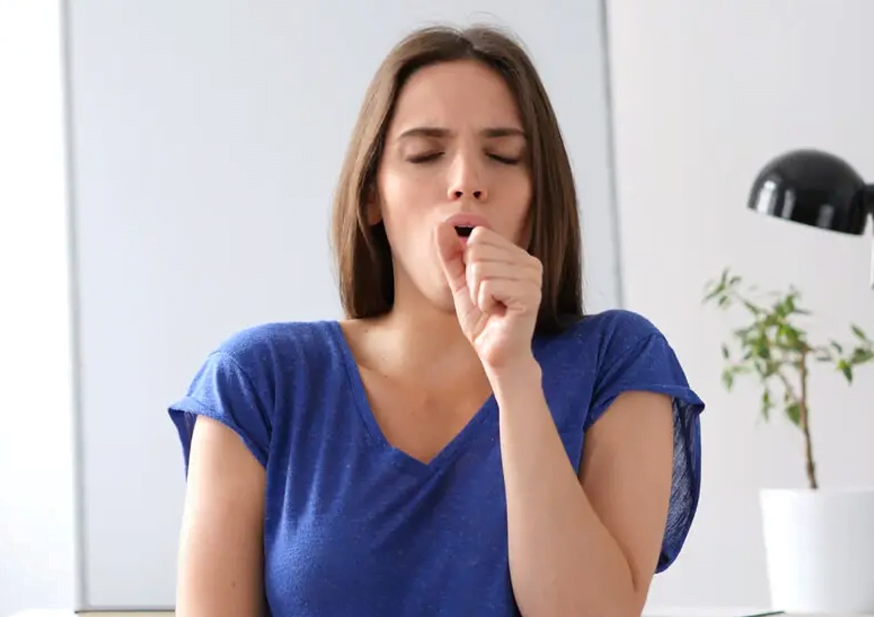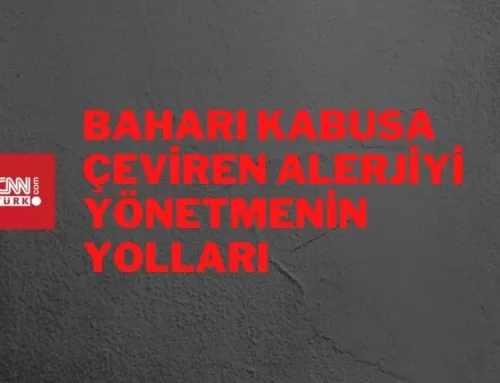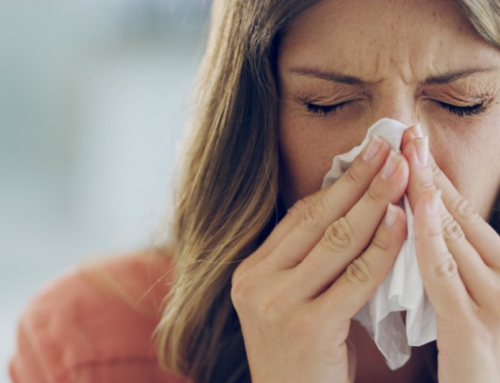CNNTURK – December 8, 2021
Asthma is a chronic disease that affects many people. Asthma, which is also common in children, can cause coughing. Especially families with cough and asthma wonder what they can do for asthma cough. Founder of Istanbul Allergy, Allergy and Asthma Association President Prof. Dr. Ahmet Akçay gave important information about asthma cough and what can be done.
WHAT IS ASTHMA Cough?
Asthma is a chronic disease of the airways and has some symptoms. Coughing is one of the common symptoms of asthma. The purpose of coughing is to remove foreign particles and bacteria to prevent a possible infection. When the cough is productive, it means that a noticeable amount of phlegm is expelled. But in most cases of asthma, coughing is considered unproductive. A unproductive cough is a dry cough. It is a response to an irritant that forces the bronchial tubes to spasm (or narrow). Swelling (inflammation) and narrowing of the airways that cause this type of unproductive cough characterizes asthma. Asthma cough is often accompanied by wheezing.
WHAT IS THE DIFFERENCE BETWEEN ASTHMA Cough AND OTHER Coughs?
It can be a little difficult to distinguish between an asthma cough and coughs caused by other conditions. Symptoms that distinguish asthma from other conditions are: A cough that gets worse at night or when laughing or after running, Cough that wakes you up at night, Cough that occurs when you wake up in the morning, Difficulty in breathing, Chest tightness, Shortness of breath, Wheezing. Children with asthma may also experience colds much more often than expected or take much longer to recover. Therefore, asthma must be kept under control.
HOW TO TREAT ASTHMA Cough?
Asthma must be controlled. Otherwise, an asthma attack may occur and an asthma attack can cause very serious conditions. Therefore, it is important to follow up regularly for your child’s asthma. Your child’s allergist may prescribe certain medications based on their asthma symptoms and current condition. These drugs must be used as directed. Depending on the condition of your child’s asthma, short-term control drugs or long-term control drugs should be used. Your child should also have an asthma action plan that you create with your allergist. Treatment with Allergy Vaccine Allergy tests reveal whether allergy vaccines, which are a more permanent treatment of asthma, are needed. If allergy is detected in the allergy test and in children and adults older than 5 years, allergy vaccination can be applied. With allergy vaccines, body resistance against allergens is increased and as a result, the immune system is strengthened. As a result, allergens become incapable of causing damage to the lungs. As a result, there are no complaints, no need for medication, and the quality of life increases significantly.
WHAT ARE THE PROTECTIONS FROM ASTHMA?
There are some ways that can be followed to prevent asthma. First of all, you need to know what triggers asthma in your child. Once you know the trigger, you can take some steps.
PROTECTION FROM DUST MITES
Dust mites, which can reproduce in humid and warm environments, are important triggers of asthma and are found in almost every home. Especially families living in cities near the sea should take precautions against house dust mites. Use allergen-proof bedding to protect yourself from dust mites. Reduce fabric materials in your child’s room. Such as carpets, furry toys, plush toys. Wash your child’s bedding at least once a week on high heat. You can use a non-textile play mat in your child’s room. Keep your child away from strong odors The bronchi of children with asthma are very sensitive and therefore extremely sensitive to smells. Avoid exposing your child to strong odors. Make sure that the cleaning materials you use at home are odorless and hypoallergenic. Wash your child’s clothes with unscented detergents.
AIR EXCHANGE AND AIR POLLUTION
Weather change and cold weather can also affect asthma. Especially in cold weather, you need to be careful. If the temperature is too low, prevent your child from going outside. Make sure to wear a scarf or scarf to cover the mouth and nose when going out. Air pollution also has a negative effect on asthma. For this reason, do not allow your child to go outside when the air pollution is intense. Herbal treatment for asthma cough The best for asthma cough is turmeric and honey. In particular, turmeric can provide relief from asthma cough by expanding the bronchi. Honey may have the potential to be beneficial in asthma due to its anti-inflammatory and antibacterial properties. For these reasons, a mixture of honey and turmeric can be used in asthmatic cough. However, in those with pollen allergy, honey can worsen cough. If honey worsens cough, it may not be appropriate to use.
BIRD EGG DOESN’T HELP
Bird yum in the treatment of asthma it won’t be of any use to him. Do not try to consume bird eggs in vain. Bioresonance is not beneficial. Bioresonance therapy is beneficial in asthma cough. Therefore, do not use this treatment for nothing. As a result, in the treatment of asthmatic cough, prevention of allergens that cause asthma, drug treatment and allergy vaccine treatment, as well as herbal treatments are useful as a complementary treatment.






